4 Things You May Not Know About The Murder Of Biggie Smalls
The rapper was only 24 when he was shot in a drive-by shooting. His killer still remains unknown.
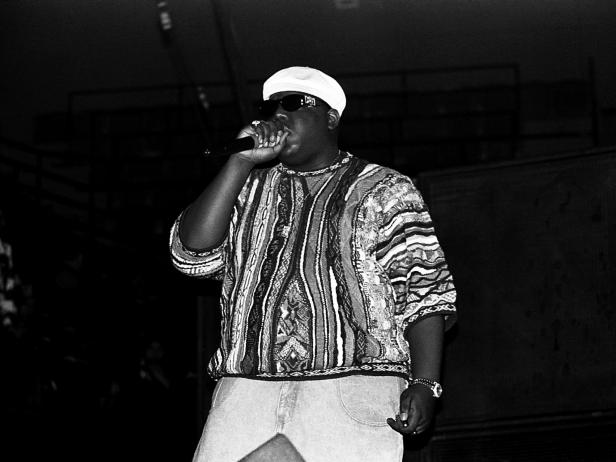
Raymond Boyd via Getty Images
CW: mentions of suicide
In 1997, at the height of his fame, Christopher Wallace, aka Biggie Smalls, was murdered in Los Angeles.
The “Juicy” rapper, who was posthumously inducted into the Rock and Roll Hall of Fame in 2020, took four bullets in a drive-by shooting. Wallace, a Brooklyn native, was in town promoting his sophomore album Life After Death.
He was killed on March 9, 1997, just six months after his rap rival Tupac Shakur was gunned down in Las Vegas, according to CNN.
The investigation into Smalls’s death went cold soon after it started, and nobody was ever charged in his killing. In 2010, The New York Times called it a "cottage industry of criminal speculation" surrounding the murder of Christopher Wallace.
Here are a few things you may not have known about the legendary rapper’s death.
Biggie Smalls was pronounced dead after an emergency surgery was unsuccessful.
Biggie was shot as he was leaving a music industry party, riding in the front passenger seat of a Chevrolet Suburban when another vehicle pulled up beside him and opened fire, CNN reported, but he didn’t die right away.
An autopsy report shows Smalls was shot four times, striking his left forearm, back and left thigh. The fatal bullet hit his right hip and ripped through several organs, including his liver, heart, and lung.
He was taken to Cedars-Sinai Medical Center, where he arrived in full cardiac arrest and was pronounced dead shortly after 1 a.m., according to the autopsy.
A former FBI agent alleges Suge Knight ordered for Biggie to be killed.
Six months after Tupac Shakur’s death, the Notorious B.I.G. was killed in Los Angeles. For many years his death was a mystery. According to retired FBI agent Phil Carson, there is not just one assailant, but a cover up.
“All the evidence points to Amir Muhammad. He’s the one who pulled the trigger,” Carson told The New York Post in 2021. “There were plenty of others who helped orchestrate it [and] allowed him to pull the trigger.”
Carson alleges Smalls’s death was “the biggest miscarriage of justice in my 20-year career at the FBI.”
“I had evidence that LAPD officers were involved, and I was shut down by the LAPD and city attorneys inside Los Angeles,” said Carson, who worked with film producer Don Sikorski to produce the movie City of Lies, which profiles Biggie’s death.
“Amir Muhammad, a.k.a. Harry Billups, the godparent to LAPD Officer David Mack’s two children, has been identified by several sources as the trigger man,” the formal FBI request written by Carson, acquired by The New York Post, read. “Mack is a registered owner of a 1995 Black SS Impala with chrome wheels, the exact description given as being driven by Wallace’s shooter.”
The Post reports Carson and Sikorski are now demanding law-enforcement officials in California renew the investigation and solve what the filmmaker calls “the JFK assassination of the rap world.”
Biggie’s family filed two wrongful deaths lawsuits against the City of Los Angeles in 2002 and 2007.
Voletta Wallace, Biggie’s mom, accused the Los Angeles Police Department of deliberately concealing tapes and more than a thousand pages of internal LAPD documents that claim two former officers, Rafael Perez and David Mack, conspired with Death Row Records boss Marion "Suge" Knight to murder the rapper, according to MTV News.
The Guardian reported, a $1.1m judgment against the city was awarded to the family, in 2006, but was revoked after district judge Florence-Marie Cooper discovered the family had information they told the court they did not have access to.
A second lawsuit, filed in 2007, was dismissed in 2010 according to The New York Times.
Biggie Smalls predicted his own death.
In the final track on his debut album, “Ready to Die,” Biggie calls Diddy, then Puff Daddy, in the middle of the night to explain he’s about to commit suicide. He eerily raps, “I’m glad I’m dead… I swear to God I feel like death is f**king calling me.”
Despite Puff’s pleas, Smalls pulls the trigger at the end of the song. Biggie’s fictional death directly ties into his sophomore album, Life After Death.
“Suicidal Thoughts” became even more significant after the fatal drive-by shooting that claimed Smalls’s life as many fans claim it foreshadowed the incident.
If you or someone you know is experiencing suicidal thoughts/ideation, please call the National Suicide Prevention Lifeline (US) 1-800-273-8255 or visit http://afsp.org for resources.
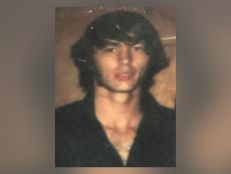
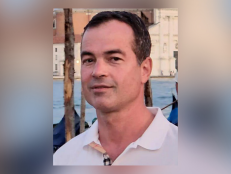
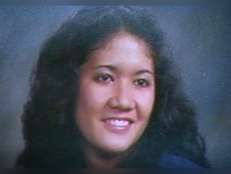
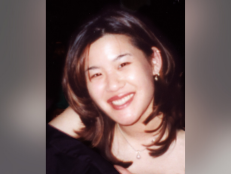
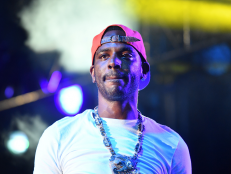
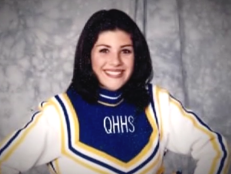
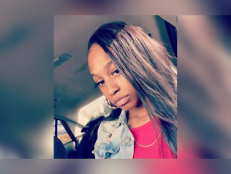
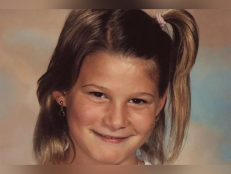
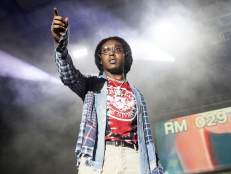
![Selena receives a Grammy Award at The 36th Annual Grammy Awards in March 1994 [via Getty Images]](http://investigationdiscovery.sndimg.com/content/dam/images/investigationdiscovery/crimefeed/legacy/2021/03/getty-selena-quintanilla-perez-1309300538.png.rend.hgtvcom.231.174.suffix/1617128091576.png)